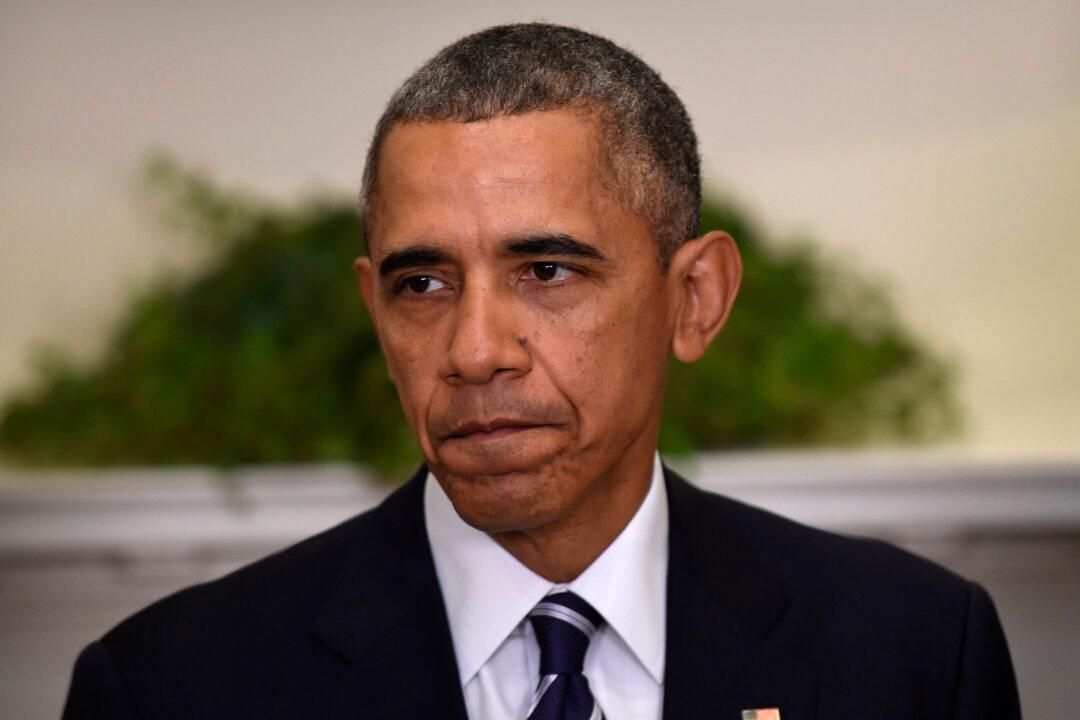WASHINGTON—President Barack Obama killed a Canadian energy giant’s application to build the Keystone XL pipeline on Friday, declaring the proposed project wouldn’t serve U.S. national interests and would have undercut America’s global leadership on climate change. The decision capped a seven-year saga that spiraled into one of the biggest environmental flashpoints of Obama’s presidency.
Announcing his decision at the White House, Obama said he agreed with Secretary of State John Kerry, whose department formally rejected the proposal for a 1,179-mile pipeline crossing the nation’s heartland. He downplayed the claimed economic benefits of the pipeline, arguing it wouldn’t have lowered U.S. gas prices, contributed to U.S. jobs long-term or made the nation less dependent on foreign energy.
“This pipeline would neither be a silver bullet for the economy, as was promised by some, nor the express lane to climate disaster proclaimed by others,” Obama said at the White House.
Killing the pipeline allows Obama to claim aggressive action on the environment, potentially strengthening his hand as world leaders prepare to finalize a major global climate pact. Obama used the occasion to announce his plans to travel to Paris in the coming weeks for talks on that agreement, which Obama hopes will be a crowning jewel for his environmental legacy.
The president, flanked by Kerry and Vice President Joe Biden, said the U.S. had become a global leader on climate action in the run-up to the Paris meeting.
“Frankly, approving this project would have undercut that global leadership—and that is the biggest risk that we face: not acting,” he said.
Yet the decision puts the president in a direct confrontation with Republicans and energy advocates that will almost surely spill over into the 2016 presidential election. It could also damage U.S. relations with Canada—a possibility that Obama acknowledged. The president said he'd spoken to new Prime Minister Justin Trudeau, who had “expressed his disappointment” over the decision.
In a nod to the political fight that developed over his many years of delay, Obama project had taken on an “overinflated role” in U.S. political discourse.
“It became a symbol too often used as a campaign cudgel by both parties rather than a serious policy matter,” Obama said, without acknowledging his own role in allowing the controversy to drag out over several national elections.





